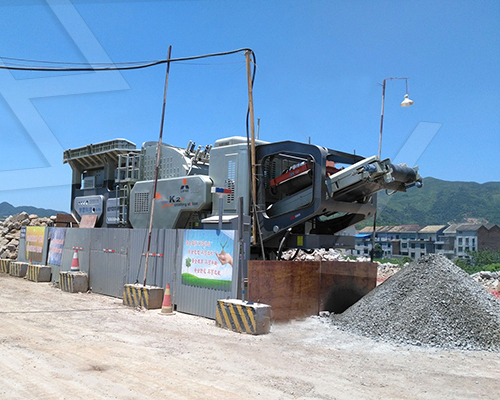When is a Mobile Crushing Plant the Right Choice? Ideal Working Conditions Explained
While a stationary crushing plant is a powerful solution for long-term, high-volume operations, it isn’t always the most efficient or profitable choice. A mobile crushing plant offers a revolutionary alternative, providing unparalleled flexibility and cost savings. However, its true value is unlocked under specific working conditions and for certain project types.
This article will explore the ideal scenarios where a portable crushing plant is not just an option, but the most strategic and profitable decision for your business.

Working Conditions on the Project Site
The physical location and nature of the job site are often the primary factors that determine the suitability of a mobile crushing plant.
- Remote or Scattered Quarries: In regions with widespread, smaller quarries or remote mining locations, building a permanent plant is often economically unfeasible. A mobile crushing station can be easily moved between these sites, allowing for efficient, on-site crushing without the high costs of infrastructure. It brings the crusher to the material, not the other way around.
- Urban Demolition and Construction: On-site material recycling is a key benefit of a portable crushing plant. It can be brought directly to a demolition site to crush concrete, asphalt, and bricks. This eliminates the massive costs of hauling waste to a landfill and, simultaneously, produces valuable recycled aggregate for use in the same project, such as for sub-bases or fill material.
- Temporary or Short-Term Projects: For large-scale construction jobs with a limited lifespan, like building a new road or airport runway, a stationary plant is an unnecessary long-term investment. A mobile plant can be set up and made operational in a matter of days, complete the project’s aggregate needs, and then be relocated to the next site, maximizing asset utilization.
Logistical and Economic Considerations
The benefits of a mobile plant extend beyond the physical location, directly impacting a project’s bottom line.
- When Reducing Transport Costs is a Priority: The single greatest advantage of on-site crushing is the drastic reduction in hauling costs. Instead of using a fleet of heavy trucks to transport raw material from a quarry to a distant processing plant, a mobile crusher can produce finished aggregate right at the quarry face. This saves a significant amount on fuel, maintenance, and labor.
- When Quick Setup and Flexibility are Needed: The self-contained nature of a mobile crushing plant means it can be moved, set up, and put into operation much faster than a fixed plant. This is crucial for projects with tight deadlines or for companies that need to respond quickly to new opportunities.
- For On-site Recycling and Material Production: A mobile plant transforms construction waste from a liability into an asset. It allows for the recycling of concrete, asphalt, and rubble, turning what would have been a disposal cost into a profitable source of high-quality aggregate. This self-sufficiency reduces reliance on external suppliers and ensures a consistent material flow.
Conclusion
A mobile crushing plant is not a one-size-fits-all solution, but for projects in the right conditions, it is an indispensable tool. It offers unparalleled on-site crushing capabilities that provide significant cost savings, operational flexibility, and a competitive advantage.
For projects in remote locations, urban environments, or with short-term timelines, the strategic investment in a mobile crushing station can revolutionize your operations and unlock new levels of efficiency and profitability.
- > How a Mobile Impact Crusher Revolutionized On-Site Concrete Recycling
- > HSPF Series Impact Crushers for Ore Crushing
- > Jaw Crusher for Hard Rock Crushing: Efficiency and Durability
- > Suitability of Mobile Crushing Plants in Mining Operations
- > Cone Crushers for Coal Processing in Morocco
- > Impact Crusher: An Efficient Solution for Coal Crushing Applications
- > Advanced Fine Impact Crushers in Russia
- > Cone Crushers for Aggregate Crushing: The Essential Tool for High-Quality Production
Hot Product


Online




Message
